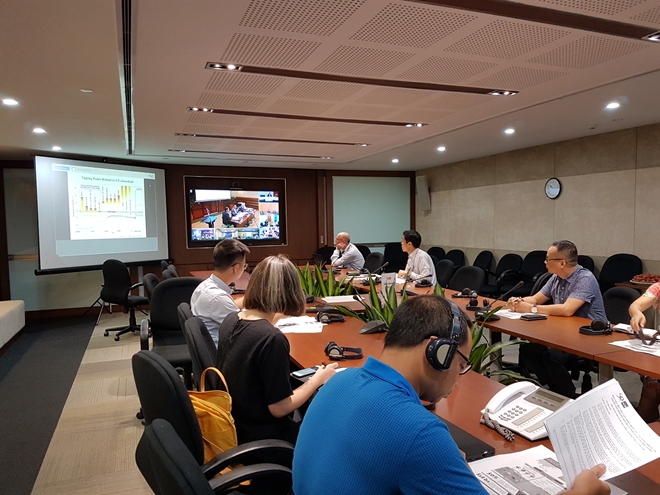Unabated climate change would reverse the hard earned development in Asia
As mentioned in the report titled "A Region at Risk: The Human Dimensions of Climate Change in Asia and the Pacific", a 6 degree Celsius temperature increase is projected over the Asian landmass by the end of the century. Some countries in the region could experience significantly hotter climates.
These increases in temperature would lead to drastic changes in the region's weather system, agriculture and fisheries sectors, land and marine biodiversity, domestic and regional security, trade, urban development, migration and heath. Such a scenario may even pose an existential threat to some countries in the region and crush any hope of achieving sustainable and inclusive development.
 |
"The global climate crisis is arguable the biggest challege human civilization faces in the 21st century, with the Asia and Pacific region at the heart of it all," said Bambang Susantono, ADB Vice President for Knowledge Management and Sustainable Development.
"Countries in Asia and the Pacific are at the highest risk of plummeting into deeper poverty and disaster if mitigation and adaptation efforts are not quickly and strongly implemented," he added.
To mitigate the impact of climate change, the report highlights the importance of implementing the commitments laid out in the Paris Agreement. These include public and private investments focused on the rapid decarbonization of the Asian economy as well as the implementation of adaptation measures to protect the region's most vulnerable populations.
Climate mitigation and adaptation efforts should also be mainstreamed into macro level regional development strategies and micro level project planning in all sectors, in addition to the ongoing renewable energy and technology innovation efforts in urban infrastructure and transport.
The region has both the capacity and weight of influence to move forwards sustainable development pathways, curb global emissions, and promote adaptation, the report concludes.
ADB approved a record of 3.7 billion USD in climate financing in 2016 and has committed to further scale up its investments to 6 billion USD in 2020.
Professor Hans Joachi Schellnhuber, PIK Director asserted that "leading the clean industrial revolution will provide Asia with unprecedented economy opportunities. And exploring the best strategies to absorb the shocks of environmental change will make Asia a crucial actor in 21st-century multilateralism."

